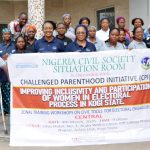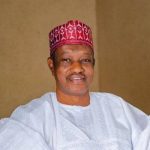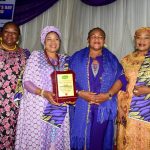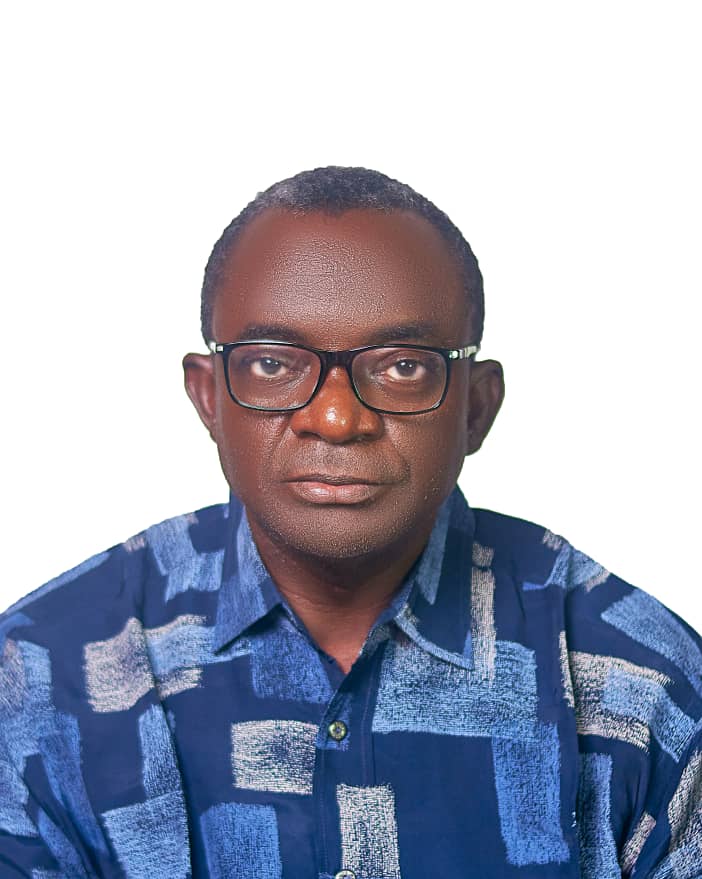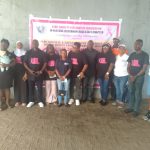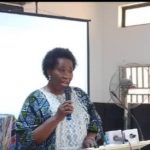The Youth Imperative: Why Our Nation’s Future Depends on Empowering Young Voices Today
By Dr. Aiyeku Olufemi Samuel
The Heartbeat of Progress
Our society thrives when young people rise—informed, involved, and inspired. The youth are not just the future; they are the heartbeat of today’s progress. This isn’t mere rhetoric; it’s a demographic and economic reality that nations ignore at their peril.
Nigeria stands at a critical crossroads. With over 70% of our population under the age of 30, and a median age of just 18.6 years, we are among the youngest nations on Earth. By 2050, projections indicate that one in every four Africans will be Nigerian, with youth comprising an even larger share of our demographic profile. The question isn’t whether young people matter—it’s whether we’re creating the infrastructure, opportunities, and platforms for them to thrive.
The Global Youth Awakening: Numbers That Demand Action
Globally, there are 1.8 billion young people aged 10-24—the largest youth cohort in human history. Yet, the International Labour Organization reports that youth unemployment rates remain disproportionately high at 13.6%, nearly three times the adult rate. In Nigeria specifically, youth unemployment hovers around 53.4%, with underemployment affecting millions more who work below their potential or skill level.
These aren’t just statistics; they represent untapped potential, unrealized dreams, and increasingly, social volatility. The World Bank warns that countries failing to invest in youth development risk demographic disaster, where a “youth bulge” becomes a liability rather than an asset—manifesting in social unrest, migration pressures, and economic stagnation.
Conversely, nations that harness youth potential experience what economists call the “demographic dividend”—an economic boom driven by a large, productive working-age population. East Asian tigers like South Korea, Singapore, and Taiwan leveraged this phenomenon, investing heavily in youth education, skills development, and entrepreneurship. The results? Economic transformations that lifted millions from poverty within a single generation.
The Innovation Imperative: Youth as Catalysts of Change
Consider this: Mark Zuckerberg was 19 when he founded Facebook. Malala Yousafzai was 17 when she became the youngest Nobel Prize laureate. Closer to home, Nigerian youth are revolutionizing sectors from fintech to entertainment. Companies like Paystack (acquired for $200 million), Flutterwave (valued at over $3 billion), and Andela have placed Nigeria on the global innovation map—all founded or co-founded by individuals under 35.
Research from the Global Entrepreneurship Monitor reveals that young entrepreneurs (ages 18-34) are 50% more likely to introduce radical innovations compared to older business owners. They’re digital natives, unburdened by “this is how we’ve always done it” thinking, and inherently collaborative in their approach to problem-solving.
UNESCO data indicates that societies with robust youth participation in civic processes experience:
– 27% higher social cohesion indices
– 34% greater governmental transparency scores
– 42% increased innovation in public service delivery
– Significantly lower corruption perception indices
These aren’t coincidences. Youth bring fresh perspectives, challenge entrenched inefficiencies, and demand accountability in ways that transform governance.
SWOT Analysis: Nigeria’s Youth Empowerment Landscape
STRENGTHS
– *Demographic Advantage*: Africa’s largest youth population—a potential workforce of over 100 million
– *Digital Adoption*: Nigeria has Africa’s highest internet penetration rate (55.4%), with youth driving 82% of digital consumption
– *Entrepreneurial Spirit*: Nigerian youth-led startups attracted over $1.37 billion in venture capital funding in 2023
– *Creative Excellence*: The Afrobeats industry, driven predominantly by young artists, generates over $2 billion annually
– Educational Foundation: Growing university enrollment with over 2 million students in tertiary institutions
WEAKNESSES
– *Skills Gap*: 65% of graduates lack job-ready skills according to the National Bureau of Statistics
– *Infrastructure Deficit*: Inadequate power supply, internet connectivity in rural areas, and transportation networks
– *Limited Access to Capital*: Less than 5% of youth entrepreneurs secure formal financing
– *Brain Drain*: Over 15,000 Nigerian professionals emigrate annually, predominantly youth seeking better opportunities
– *Civic Disengagement*: Only 23% of eligible youth voters participated in the last general elections
OPPORTUNITIES
– *Fourth Industrial Revolution*: AI, blockchain, and renewable energy sectors offer unprecedented opportunities
– *African Continental Free Trade Area (AfCFTA)*: $3.4 trillion market with youth-driven businesses positioned to benefit
– *Global Remote Work*: Nigerian youth can compete for international opportunities without emigrating
– *Social Media Influence*: Youth-led movements (#EndSARS) demonstrated unprecedented organizing capacity
– *Green Economy*: Climate action initiatives requiring youth innovation and leadership
THREATS
– *Security Challenges*: Insurgency, banditry, and kidnapping disrupting education and economic activities in multiple regions
– *Economic Volatility*: Inflation (currently over 25%) eroding purchasing power and investment capacity
– *Political Exclusion*: Gerontocratic political structures limiting youth representation (average parliamentarian age: 52)
– *Mental Health Crisis*: Rising depression and anxiety among youth, exacerbated by economic pressures
– *Digital Divide*: Over 40% of rural youth lack internet access, creating inequality in opportunity
Creating Spaces: From Theory to Practice
Let’s create spaces where young voices are heard, ideas are valued, and participation is encouraged. But what does this actually look like in practice?
*1. Educational Transformation*
Finland’s education system, consistently ranked among the world’s best, emphasizes critical thinking over rote memorization. They’ve eliminated standardized testing in favor of project-based learning. The result? Students who are creative problem-solvers, not just information repositories.
Nigeria must reimagine education beyond certificates. The National Youth Service Corps (NYSC) program, for instance, could be restructured to include mandatory entrepreneurship training, digital skills bootcamps, and civic leadership modules—transforming it from a ceremonial year into a genuine launchpad for career development.
*2. Political Inclusion That Goes Beyond “Not Too Young To Run”*
While the Not Too Young To Run Act reduced the minimum age for presidential candidates from 40 to 35, real inclusion means affordable campaign financing, mentorship from established politicians, and mainstream media coverage that doesn’t dismiss youth candidates as “inexperienced.”
Rwanda offers a compelling model: 30% of parliamentary seats are reserved for youth (under 35). Since implementation, Rwanda has seen increased legislation on technology, environmental protection, and innovation—directly correlating to youth representation.
3.Economic Empowerment Through Access, Not Charity
The Bank of Industry’s Youth Entrepreneurship Support (YES) program and similar initiatives are steps forward, but they reach less than 2% of eligible youth. Scaling requires:
– Single-digit interest rate loans for youth entrepreneurs
– Tax holidays for businesses under five years old
– Government procurement quotas for youth-owned businesses (currently virtually non-existent)
– Venture capital funds specifically targeting early-stage youth innovations
South Korea’s approach is instructive: their government provides up to $50,000 in grants for youth-led startups, no strings attached, based purely on idea merit. The return on investment? A thriving startup ecosystem contributing 12% to national GDP.
4. Digital Infrastructure as a Right, Not a Privilege
Estonia, a nation of just 1.3 million, has 99% internet penetration and has produced more unicorn startups per capita than anywhere else. Their secret? They declared internet access a basic human right and invested accordingly.
Nigeria’s 3 Million Technical Talent (3MTT) initiative aims to train youth in digital skills—an excellent start. But training without infrastructure is futile. We need simultaneous massive investment in broadband infrastructure, particularly in underserved communities.
*5. Civic Spaces and Youth Councils*
Kenya’s Youth Affairs ministry established Youth Councils at county and national levels with actual decision-making authority over youth-designated budgets. These aren’t ceremonial bodies—they’ve funded over 3,000 youth projects and influenced national policy on education and employment.
Nigerian states should establish Youth Advisory Councils with statutory powers to review and input on policies affecting education, employment, technology, and social development. Youth perspectives shouldn’t be solicited as an afterthought; they should be embedded in governance structures.
The Participation Paradox: Why Youth Disengage
A 2023 Afrobarometer survey revealed a troubling paradox: 78% of Nigerian youth believe they can drive change, yet only 31% actively participate in civic processes beyond voting. Why?
*Trust Deficit*: Repeated disappointments breed cynicism. Youth mobilize for change (#EndSARS), only to face violent crackdowns rather than dialogue.
*Survival Trumps Activism*: When you’re uncertain where your next meal comes from, participating in community meetings becomes a luxury.
*Tokenism*: Youth are frequently invited to tables where decisions have already been made—creating the appearance of inclusion without genuine power-sharing.
*Digital vs. Physical Divide*: Youth express opinions actively online but struggle to translate digital activism into tangible community impact, partly because traditional civic structures don’t recognize or accommodate digital-native engagement styles.
Breaking this cycle requires intentional trust-building, economic stability initiatives, genuine power-sharing, and hybrid civic engagement models that bridge online activism and offline impact.
The Economic Case: Youth Development as National Investment
The African Development Bank estimates that investing just $21 billion annually in youth skills development across Africa would generate $500 billion in economic returns within a decade—a 2,380% return on investment. These aren’t abstract figures; they represent:
– Reduced dependency ratios
– Increased tax revenues
– Lower social welfare costs
– Enhanced innovation capacity
– Greater geopolitical influence
Nigeria’s annual budget rarely allocates more than 8% to education and youth development combined—far below the UNESCO-recommended 15-20%. Meanwhile, we spend exponentially more on debt servicing and recurrent expenditure. This is fiscal myopia that mortgages our future for present political convenience.
Building the Nation We Dream Of: A Collective Covenant
Together, we build the nation we dream of. But “together” cannot be rhetorical—it must be operational.
*For Government:*
– Institutionalize youth participation at all levels of governance
– Increase education and youth development budgets to minimum 15% of annual spending
– Create tax incentives for companies that employ and train young people
– Establish transparent mechanisms for youth to access funding, mentorship, and markets
*For Private Sector:*
– Commit to hiring targets for youth (particularly in leadership pipelines)
– Invest in apprenticeship and internship programs with guaranteed employment pathways
– Establish corporate venture funds focused exclusively on youth-led innovations
– Prioritize youth-owned businesses in supply chain decisions
*For Civil Society:*
– Create mentorship networks connecting established professionals with young people
– Develop civic education programs that demystify governance and empower participation
– Advocate for policies and legislation that advance youth interests
– Build platforms for youth-led solution development to community challenges
*For Youth Themselves:*
– Engage beyond social media activism—attend town halls, join advisory boards, run for office
– Develop skills continuously; the world is changing faster than any curriculum
– Build coalitions across ethnic, religious, and geographic divides
– Mentor peers; the ladder of success strengthens when we lift others as we climb
*For Parents and Educators:*
– Encourage critical thinking and questioning, not just obedience
– Expose young people to diverse career possibilities beyond traditional professions
– Support youth participation in community service and civic engagement
– Model the values of integrity, resilience, and innovation we wish to see
The Urgency of Now
History judges societies not by their accumulated wealth but by how they empowered their most vulnerable and invested in their youngest. We stand at an inflection point.
The #EndSARS movement in 2020 demonstrated that Nigerian youth possess organizational capacity, technological sophistication, and moral clarity that can reshape national conversations. That energy didn’t dissipate—it’s waiting to be channeled toward constructive nation-building.
Our challenge isn’t a lack of potential; it’s a failure of imagination and will. Other nations have faced similar challenges and emerged transformed because they made a collective decision: youth development is not a sector; it’s a national imperative.
Singapore’s Lee Kuan Yew famously said, “The quality of a nation’s young people determines its future.” He backed that conviction with policies, resources, and structural reforms that transformed a resource-poor island into a global economic powerhouse within three decades.
Nigeria has infinitely more natural and human resources than Singapore ever possessed. What we need is the same clarity of purpose, consistency of investment, and courage to disrupt entrenched systems that marginalize youth.
A Call to Action
This isn’t a moment for passive agreement and social media shares. It’s a summons to action:
*If you’re in government:* What policy will you champion this quarter that meaningfully improves youth access to opportunity?
If you’re in business:How many young people will you intentionally employ, train, or finance this year?
If you’re an educator: Are you preparing students for the world that exists or the world that’s emerging?
If you’re a young person: What specific action will you take this week to engage your community, develop your skills, or support a peer?
*If you’re a parent:* Are you raising obedient children or empowered citizens?
The nation we dream of won’t materialize through wishes and platitudes. It will be built—brick by brick, policy by policy, investment by investment, conversation by conversation—by those willing to believe that young people are not problems to be managed but partners in progress.
Our society thrives when young people rise, informed, involved, and inspired. The data is unequivocal. The examples are abundant. The opportunity is now.
The question is no longer whether to invest in youth. It’s whether we have the courage to invest enough, fast enough, intentionally enough to harness this demographic dividend before it becomes a demographic disaster.
The youth are not just the future. They are the heartbeat of today’s progress. And that heartbeat is quickening. The only question remaining is: Will we move with it, or will history record that we had the opportunity of a century and squandered it?
Dr. Aiyeku Olufemi Samuel is a development consultant, youth advocate, Girl-child Advocacy and public policy analyst committed to advancing inclusive governance and sustainable development across Africa.
For comments, feedback, or collaboration opportunities, engage in the conversation below. Share this article if you believe youth empowerment is not just important—it’s urgent. For feedback or further engagement 0803 786 6085 aiyekuolufemi@gmail.com


